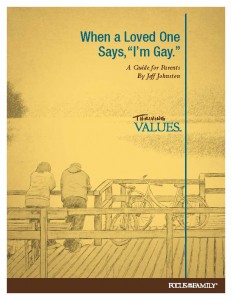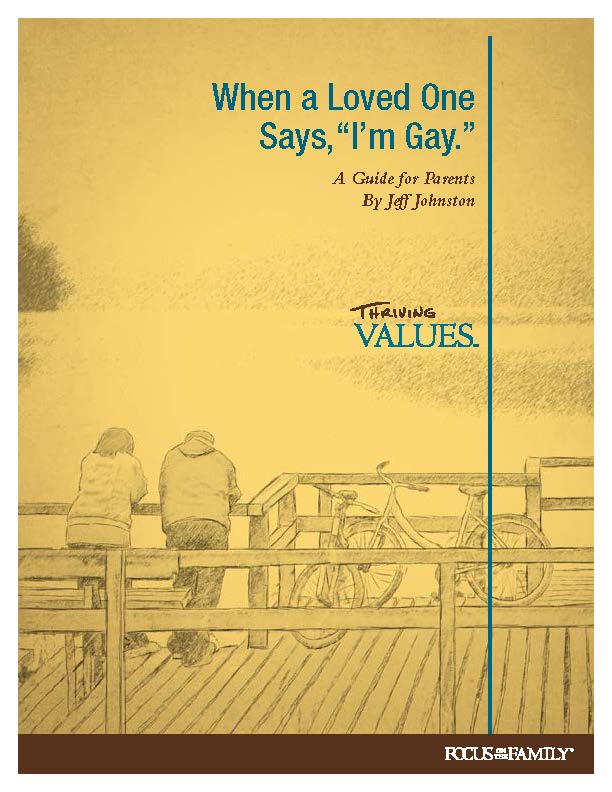A Guide for Parents: When a Loved One Says, “I’m Gay.”
 Recently we have highlighted a number of resources on our website that are courtesy of our friends at Focus on the Family. These resources are available for you, your family, and your church, and they are designed to equip you to respond to today’s culture.
Recently we have highlighted a number of resources on our website that are courtesy of our friends at Focus on the Family. These resources are available for you, your family, and your church, and they are designed to equip you to respond to today’s culture.
Our friends at Focus recently released a guide geared toward parents. It deals with how to respond when a loved one tells you, “I’m gay.” Jeff Johnston with Focus on the Family writes,
A 2015 study from the United Kingdom found that almost half of the 18-to-24-year-olds surveyed do not identify as ‘heterosexual.’ That’s right; 49 percent of the young adults in the poll placed themselves somewhere on the scale where homosexuality was an option. Another study by the same group found that in the U.S., almost one-third of young Americans don’t define themselves as ‘100-percent heterosexual.’
We live in a time where ‘sexual fluidity’ and the celebration of homosexuality are commonplace.
Johnston goes on to offer input and pointers on responding to family members who identify themselves as gay in a manner that is loving without compromising biblical truth.
You can download this new guide here.
You can also check out a number of similar guides on our Resources For Your Church and Family page.



 According
According 